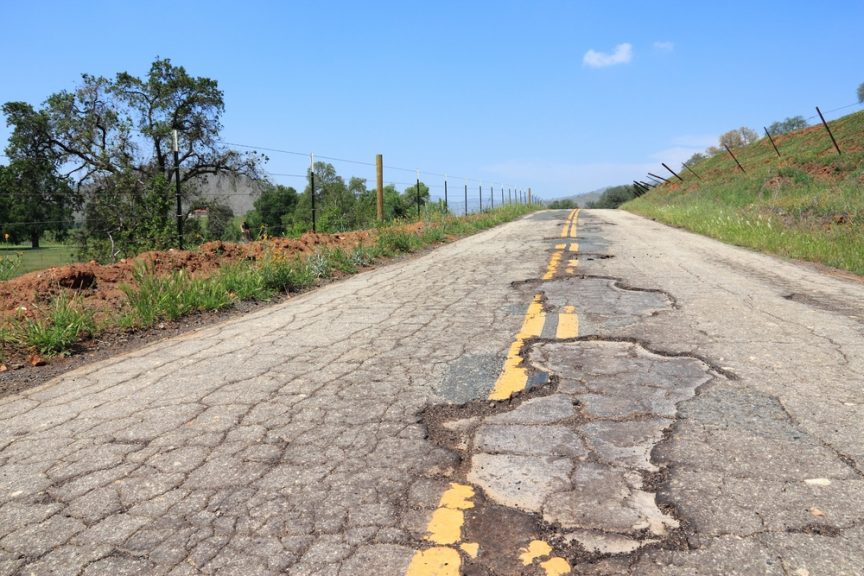Facing financial constraints as a result of state and federal budget cuts, one Michigan town is considering converting their deteriorating paved roads to gravel.
All across the U.S., budget cuts are forcing local municipalities to shoulder the financial burden of road maintenance. And many, like the Village of Brooklyn, Michigan, are having trouble keeping up. “It’s a universal problem,” says Village Trustee Stella Roberts.
Brooklyn Village owns nine miles of deteriorating paved roads. To return them to an acceptable condition, the town estimates it will need $800,000. The problem? There’s not even $100,000 in Brooklyn’s coffers for repairs next year.
The Road Less Traveled
A number of factors have contributed to Brooklyn’s funding disparity. Dwindling revenue from the State of Michigan has reduced their budget by $200,000 over the past fifteen years. Like many towns, Brooklyn Village lacks the tax revenue to even maintain their local road infrastructure, let alone bring it back to an acceptable condition.
So in 2015, Brooklyn Village proposed the idea of converting their paved roads back to gravel as a way to reduce the cost of upkeep. Gravel roads “are certainly going to be cheaper to maintain than paved roads,” said Roberts.
Some in the community have voiced concerns, saying they “don’t want to go backward in time to gravel roads.” And Roberts gets it — she remembers when gravel roads meant dust, mud, and additional costs like increased wear and tear on car tires and suspension systems.
But the fact remains that something has to be done — otherwise the conditions of the village’s roads will only get worse. And given the latest technological developments in the fields of soil stabilization and dust control, gravel roads increasingly look like the best option.
The Midwest Advantage
Gravel roads have come a long way in the last few decades, thanks to the advent of innovative dust control products like Midwest Industrial Supply Inc.’s patented EK35® — one of the first Synthetic Organic Dust Control® products on the market.
Binding with the existing soils, this organic synthetic fluid infuses rural roads with the strength of paved asphalt while preserving the “as constructed” properties of the original road. Trapping dust as soon as it’s produced, EK35 can reduce fugitive dust particles by 80%, gravel loss by 50%, and maintenance costs by 50% as well.
At Midwest, we work closely with communities of all sizes to design road maintenance programs that fit their requirements. From recommending an appropriate product to handling the turn-key application process, we go the extra mile to ensure our partners find the solutions that best meet their needs.
For towns and municipalities that find themselves kicking the can down their crumbling paved roads, gravel roadways treated with Midwest’s patented products can prove to be just the alternative they were looking for.

